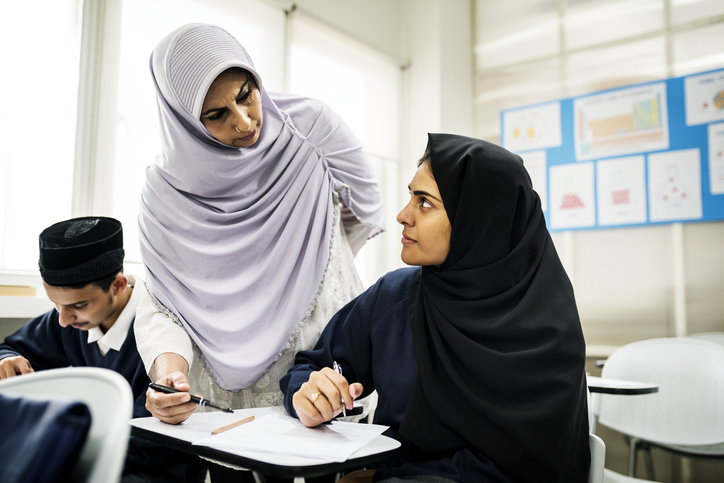
Dr Agustinus Bandur uses NVivo to improve the quality of education in Indonesia.
One of the driving influences behind improving the quality of education across Indonesia’s schools and higher education institutions is Dr Agustinus Bandur. A senior lecturer and strategic research & partnership leader at BINUS University in Jakarta, Dr Bandur has spent more than 15 years researching how to improve leadership and management in education across Indonesia. Dr Bandur also consults to several not-for-profit organizations, including the Florenza Children Resources Center, which he founded in 2008 to help children improve their learning.
Improving education in Indonesia
For Dr Bandur, the issue of improving Indonesia’s education system is compounded by its sheer size and diversity.
With more than 50 million students and 2.6 million teachers in more than 250,000 schools, it is the fourth largest education system in the world, behind only China, India and the United States.
While Indonesia has made major progress in improving its primary and secondary education, serious issues remain around the drop-out rates of students. According to the 2016 National Socio-Economic Survey, around one million children between 7 – 15 years old are not attending primary or junior secondary school. Meanwhile, another 3.6 million adolescents aged 16 to 18 are out of school. There are also concerns around the quality of learning at Indonesian schools. According to UNICEF, only 81% of primary school teachers hold the minimum qualifications required by government.
The role of research
Dr Bandur’s research has been central to discussions around school-based management (SBM) policy reform in Indonesia, which saw education decentralize and shift responsibility to schools in 2005 in an effort to improve management within the education sector. In response to higher education globalization in Indonesian universities, Dr Bandur has also focused his research on higher education internationalization.
While Dr Bandur has plenty of passion for improving Indonesia’s education management and leadership, what he doesn’t have is a lot of time. With so many projects, educational institutions and not-for-profit organizations are relying on his research insights, Dr Bandur realised early on that he needed a faster, more efficient way of collecting, managing and analyzing his research data.
In 2002, Dr Bandur began using NVivo, software designed to support qualitative data analysis. Since then, Dr Bandur relies on it almost every day for his research needs, from conducting literature reviews to content analysis of various sources, thematic and cross-case analysis, as well as mixed-methods research. He also uses NVivo to ensure his articles and books are based on authentic, evidence-based data.
How NVivo Helps
NVivo is the number one software chosen by academics around the world for presenting the most robust, defensible findings from qualitative research. According to Dr Bandur, NVivo saves him significant time and
effort, particularly with queries for content analysis, cluster analysis and visualizing themes, as well as with transcribing data.
NVivo saves time with transcribing
“For any qualitative research, transcribing is tiring,” said Dr Bandur. “Prior to learning about NVivo, I would have to listen to interviews in Windows Media Player and transcribe them into Microsoft Word. It meant having two programs opened at the same time, which took time to use and control. In NVivo, I can hear, see and manage my recorded data much more effectively and efficiently. It is also fascinating with NVivo to capture and transcribe secondary data from YouTube videos prior to conducting primary data collection in the field.”
NVivo identifies themes from hundreds of papers
“Another advantage of NVivo is that I do not have to read all the references to make sense of the data. Instead, with the query system in NVivo, I can search the main theme, word or topic that I am analyzing, saving me from having to skim through hundreds of papers and potentially miss important information. NVivo is also a perfect tool for me as it integrates my papers managed in Mendeley.”
NVivo adds credibility to research through the triangulation technique
“Finally, NVivo adds credibility to my research. It allows me to quickly create project mappings, analyze the attributes and perform cross-case analysis. The triangulation technique – combining data from different sources such as interviews, focus groups and photos – is something I use frequently to improve the strength of my findings. I also find team research helps. With NVivo, my research team can work on the same project, allowing us to conduct inter-rater analysis to measure reliability.”
Best practice research results in greater student achievements
According to Dr Bandur’s research, there is evidence that the implementation of the SBM policy has resulted in improving teaching learning environments and student achievements. He continues to study its effects and train others – along with advocating NVivo as a best practice way to collect, manage and analyze data. “The NGOs I work with, including Wahana Visi Indonesia, SMERU Research Institute and Perkumpulan Prakarsa are all now using NVivo. My Doctoral and Master’s students have also applied NVivo in their Doctoral dissertations and Master’s theses. I strongly recommend NVivo to students, scholars and research because it is a powerful tool for the purposes of conducting content, thematic, and cross-case analyses in qualitative research.”
ABOUT THE AUTHOR
QSR International with Dr Agustinus Bandur
Dr Agustinus Bandur PhD, is a senior lecturer and strategic research & partnership leader at BINUS University in Jakarta. Dr Bandur has spent more than 15 years researching how to improve leadership and management in education across Indonesia. Every day, QSR International helps 1.5 million researchers, marketers and others to utilize Qualitative Data Analysis (QDA) to uncover deeper insights contained within the “human data” collected via social media, consumer and community feedback and other means. We give people the power to make better decisions by uncovering more insights to advance their area of exploration.
